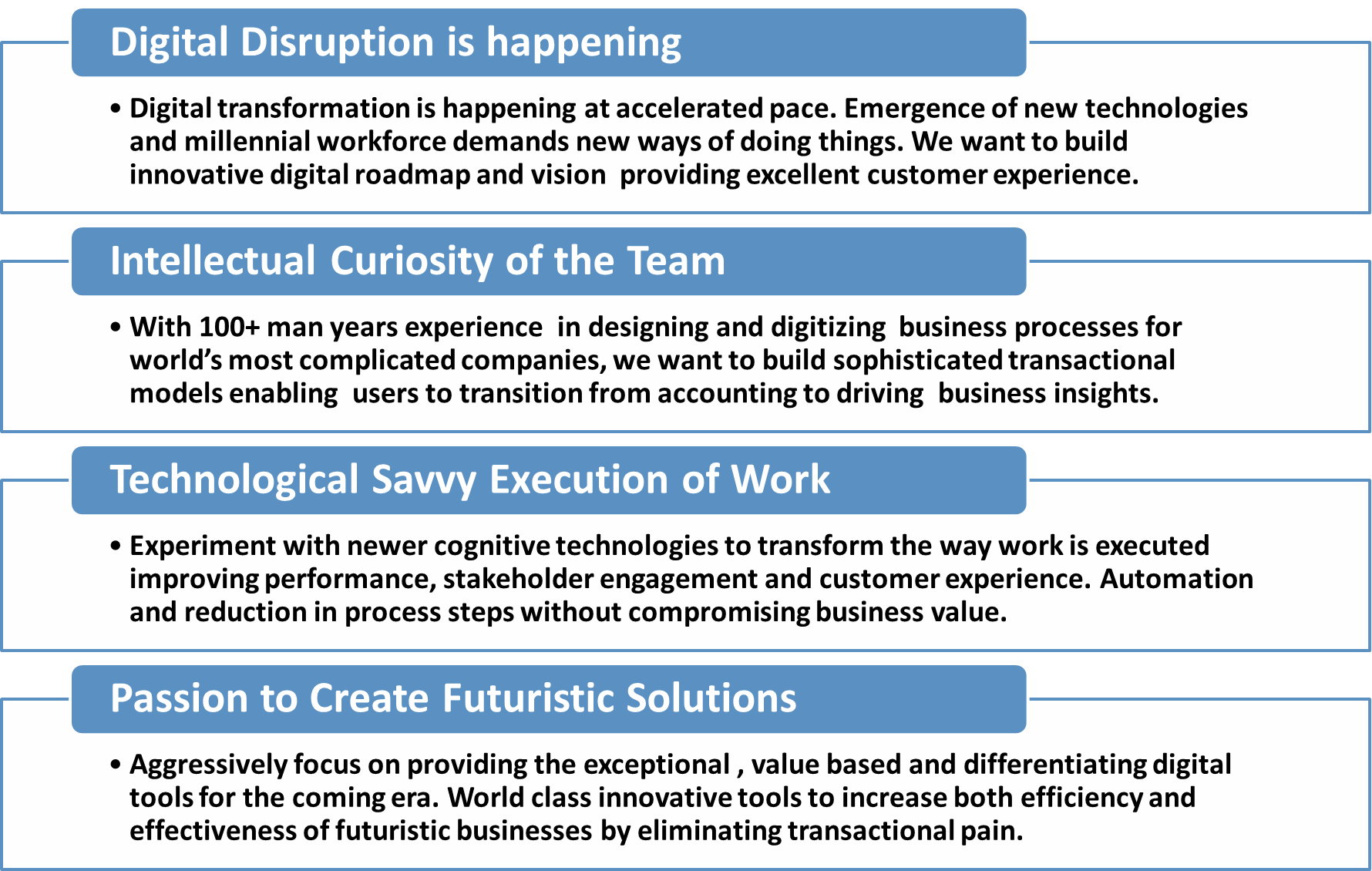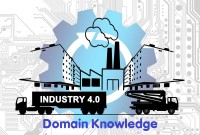- Home
- Business Processes
- Industry Knowledge
- Aerospace Industry
- Automotive Industry
- Banking Domain
- BFSI Industry
- Consumer/ FMCG Industry
- Chemicals Industry
- Engineering & Construction
- Energy Industry
- Education Domain
- Finance Domain
- Hospitality Domain
- Healthcare Industry
- Insurance Domain
- Retail Industry
- Travel and Tourism Domain
- Telecom Industry
- Leadership Skills
- eLearning
- Home
- Leadership
- Career Management
- Guide to Technical Leadership Skills
Guide to Technical Leadership Skills
Technical leaders care about building amazing products and the best technical capabilities in their teams. Everything they do is focused on improving the user experience and bringing competitive advantage for their organization. Learn the skills and competencies you need to build a technical career path for yourself that starts with building technical expertise and grows into developing technical leadership.
With any medium you are working in, technical skills obviously help, but your mind is what you really need to expand. That is how you create work. That's the role of the artist - to change the way you view things.
- Petra Collins
Technical Skills to Technical Leadership Career Path
It plays a major role in today’s businesses and building great software requires making decisions from the beginning to the end. The first responsibility of a technical leader is to define the technical strategy and decide on the technical direction the company should take. Technical leadership requires technical excellence, the business and technological context, and the ability to balance between speed, quality, and resource constraints.
Technical Leaders are those who excel and distinguish them as the most skilled and demanded professional who always acts with a high degree of professionalism. They are dedicated learners who are always committed to personal and professional development along-with pursuing a path of lifelong learning. They possess strategic thinking skills with the ability to link technology with business processes to provide quality advice for effective business solutions.
A strong leader must understand the technical details of the overall project and constantly guide the team to stay focused on the overall vision that the organization is trying to achieve. A technical leader must also have the skills to build a strong technical team, assign them meaningful work, and also track and understand the details of the work the team is doing.
How to Build Technical Leadership
Technical leadership requires technical skills as well as functional business process knowledge to gain a complete understanding of ever-changing business dynamics. They need to gain business know-how and enable their technical or functional abilities to work more efficiently and effectively while performing their role, which is to increase productivity, drive operational excellence, and ensure quality, providing better solutions to complex business problems and drive cost reduction in their respective areas.
If you are working in a modern End-to-End integrated IT-enabled enterprise, you need to gain a relevant skill-set, explore techno-functional opportunities, and showcase your expertise and experience more confidently. You should be able to anticipate and address the changing needs of clients, employers, customers, and markets well than any other professional that does not have technical expertise. You should gain substantial knowledge of the industry's most widely used enterprise resource planning tools and important related fields like SOX requirements, Six Sigma, Risks Controls and Governance, Audit of Systems, and can demonstrate this ability to integrate into the business decision process.
You should try to seek formal education to the foundation of key terms and all the key processes applicable to your domain, which will help you in a long way to understanding the business terminology and business needs. This when combined with your technical knowledge will help you in providing effective and efficient business solutions that will help you put your career on a fast track.

Importance of Technical Leadership
As the number of companies is opting for automated systems to track their business operations, more and more change initiatives are undertaken by corporates. This has created an ever-increasing demand for Technical, Functional, and Techno-functional resources. There is no specialized community or portal available in the market that can assure employers and clients about the capability of these highly paid resources. The pool of credentialed talent is not keeping pace with the demand and there is no formal certification process to ensure the techno-functional they employ have the necessary skills and expertise to understand the business requirements and translate the IT Systems operating in complex business models to make then effective for business objectives.
Most of the people working on complex projects have gained their knowledge by virtue of their experience rather than going through professionally recognized formal training on how to best execute their responsibilities. There are a huge scarcity and demand for skilled techno-functional managers is at a critically urgent level. Effective technical leadership skills enable you to stand out from the crowd and demonstrate your techno-functional skills with required business, domain, and leadership skills.
Key Responsibilities of a Technical Leader
Given below are the key responsibilities that a technical leader is expected to perform in his role:
- Defining the vision and path to achieve technical excellence and productivity for the team
- Leading by example is very important to demonstrate technical expertise
- Defining projects and providing technical direction
- Focus on the big picture and ensure key deliverables are met on defined timelines
- Providing feedback and guidance by answering the technical questions that the team might have
- Keeping the focus on quality and establishing operational mechanisms
Explore Technofunc Toolkit for Technical Leadership
Technofunc resources aim at bridging the gap between technical and functional expertise and have invested a lot of effort into creating tutorials on various business processes and industry knowledge. Our curriculum is designed to equip a person to leverage technology as well as learn critical business application processes along-with system integrity and security, systems audit, project management, and other key methods widely used today that helps in the integration of business processes and practices in tune with the requirements that are driven both by business, globalization and legislature. We help you gain expertise in both technical and functional skills, which when applied collectively comprise of professional competence and excellence.
Given below are the different technofunc resources to start building your technical leadership skills:
Build Domain Skills
- Aerospace Domain
- Automotive Domain
- Banking Domain
- BFSI Domain
- Consumer / FMCG Domain
- Chemicals Domain
- Engineering and Construction Domain
- Energy Domain
- Education Domain
- Financial Management & Business Dynamics
- Global Markets Domain
- Hospitality and Leisure Domain
- Healthcare Domain
- Insurance Domain
- Technology Domain
- Retail Domain
- Travel Domain
- Telecom Domain
Even in such technical lines as engineering, about 15% of one's financial success is due one's technical knowledge and about 85% is due to skill in human engineering, to personality and the ability to lead people.
- Dale Carnegie
Related Links
You May Also Like
-
Stress is an essential part of our life. No one can live without stress. Stress can be beneficial as well as harmful. Stress as a positive influence adds excitement and hope while as a negative influence it can result in destructive feelings, anger, and depression. Although the general orientation to stress is to consider unfavorable outcomes, yet one must have observed that stress experiences may also facilitate the development of effective and varied coping behavior, increased personal resources, and lead to a sense of competence in development. Stress at a moderate level is not only inevitable but may be useful for physical and mental well-being.
-
Stress is a product of the busyness of modern life. It has assumed grave dimensions ever since the emergence of industrialism. In fact, stress is a natural, ongoing, dynamic, and interactive process that takes place as people adjust to their environment. Stress can be brought about by positive or negative life events. Distress can cause disease and eustress or positive stress can promote wellbeing and increased productivity. Learn to recognize and be responsible for your stress, and learn the ways to manage stress.
-
Navigating your career journey will hopefully include a series of experiences that challenge your skills and abilities in ways that are satisfying and rewarding. Only you can manage your career. That means you must determine what things you are passionate about, what your goals are, both professionally and personally, and how much energy you are willing to invest along the way. Learn how to build an effective career path framework for yourself.
-
Building Your Domain Knowledge
Domain knowledge from a career management perspective encompasses the understanding of industry dynamics and business processes of the target operational area. Domain expert exhibits clear knowledge in the respective industry and understands the industry concepts in general. It is always recommended to best highlight your exposure of domain in your resume or cover letter. TechnoFunc provides you with the best tutorials to gain domain knowledge in a large number of industries and business areas.
-
Tips for Effective Time Management
After studying and analyzing how time is spent, why time is wasted, and where time is wasted you need to decide about the changes required for effective utilization of time. For this purpose, a large number of remedial measures can be taken by you. The first and foremost determinant of a planned and purposeful utilization of time is to develop consciousness of the value of time at all levels of the organization. Planning, goal setting, and defining priorities are concerns to addressed immediately.
-
In our present Hitech scenario, society is changing very fast. What are the skills that are most relevant for leaders in relation to the changing economic environment? Leaders need to develop skills to drive innovation and change in order to play a more central role in their organizations’ activities. How do managers accept the change and meet business expectations by becoming a key figure in driving change and innovation?
-
What are some of the smartest things you can do in your early career that can help you become successful? The more you challenge yourself early on and gain a multitude of experiences and skills, the more successful you'll become down the road. In this article, we have compiled our best career advice including tips from career and recruitment experts. Here are some important tips to keep in mind as you plan your education and training, your career, and your life.
-
Emergent leadership occurs when a group member is not appointed or elected as leader, but rather that person steps up as the leader over time within-group interactions. Have you ever faced challenges in getting accepted into your new role of position as a leader? Groups don't automatically accept a new "boss" as a leader. Emergent leadership is what you must do when taking over a new group. Learn more about emergent leadership.
-
At different points in your professional career, it is helpful to identify your core values. Values are the qualities considered to be the most important guiding principles that determine the priorities in your life and greatly influence your career choices. Your career brings happiness when it is in agreement with the beliefs you have about what is important and meaningful to you. Awareness of your values will help you develop a clearer sense of what's most important to you in life.
-
Functional skills are the core competencies that can be transferred to different work areas like understanding of finance is independent and a finance expert can comfortably adapt to a manufacturing or service industry. Functional skills are obtained by understanding the various processes and the principles applicable to a business function. Functional experts are in great demand as they are specialists and required to manage the business processes like human resources, operations, or finance.
Explore Our Free Training Articles or
Sign Up to Start With Our eLearning Courses

About Us
Learning
© 2023 TechnoFunc, All Rights Reserved










